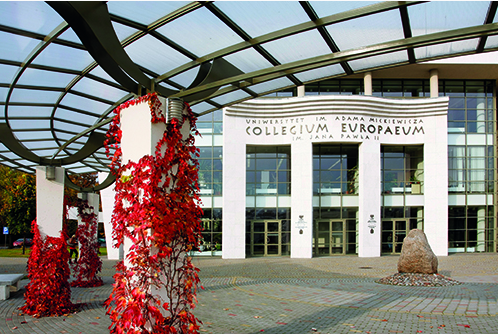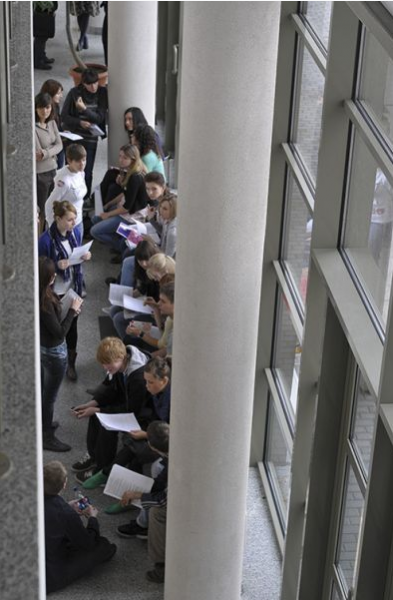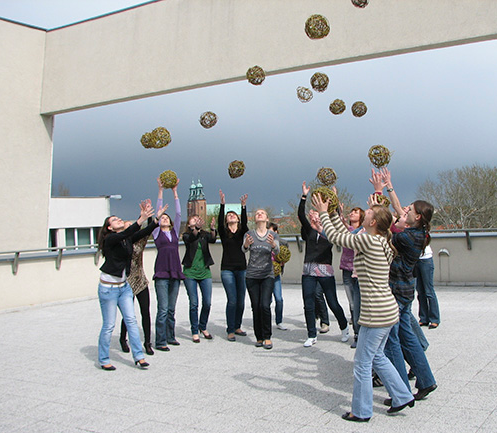Institute of European Culture in Gniezno
It’s the closest AMU campus away from downtown Poznań. It takes about 30 min. to get there by train or by car.
The research objective of the Institute is the exploration of that which constitutes the signum specificum of “Europeanism” and “being European” with regard to the fundamental diversification of these notions – both in the past as well as nowadays.
Among more detailed research themes one finds issues related to literature, plastic arts, film, philosophy, religion, law, politics, mass communication and social media of all kind.
visit our site (Polish version only)
It’s the closest AMU campus away from downtown Poznań. It takes about 30 min. to get there by train or by car. IEC premises include the main building with lecture halls and administration, library, open-air amphitheater, sports facilities (basketball court, sports hall with auditorium, gym, tennis court), a cafeteria and dormitories. The dorms are modern buildings offering accommodation in three-bedroom apartments (single or double) with bathrooms.
Teaching and research revolves around European issues connected to common European heritage, politics and culture. Gniezno was the first official capital of Poland over 1,000 years ago and it was the coronation site for many of the Polish monarchs over the centuries. The Silver Coffin of St.Adalbert, at the Gniezno Cathedral and the statute of Boleslaw first crowned king of Poland contribute to a very special understanding of what contemporary Europe was founded upon.
The research objective of the Institute of European Culture is the exploration of that which constitutes the signum specificum of “Europeanism” and “being European” with regard to the fundamental diversification of these notions – both in the past as well as nowadays. Among the more detailed research themes one finds issues related to literature, plastic arts, film, philosophy, religion, law – both of the ages past as well as contemporary times.
Apart from the studies in the history of European culture, the research conducted here explores mass communication and the social media of all kinds, since there is a need to complement the research field concerned with the phenomena of contemporary European culture with investigation into modern methods of knowledge and information transfer; issues which are key to the understanding of the world nowadays.
These studies are supported by a third, political and legal branch. This follows from the fact the two aforementioned domains involve a range of issues in that respect, issues which go far beyond the themes associated with EU integration.
IEC students prepare and carry out annual cultural projects such as Juwenalia (Rag Day), the University Night, Winter Meetings with Science, in addition to being the hosts of the Institute’s Gallery, where they may exhibit their works and organize other displays and exhibitions.
All study programs are currently offered only in Polish.





